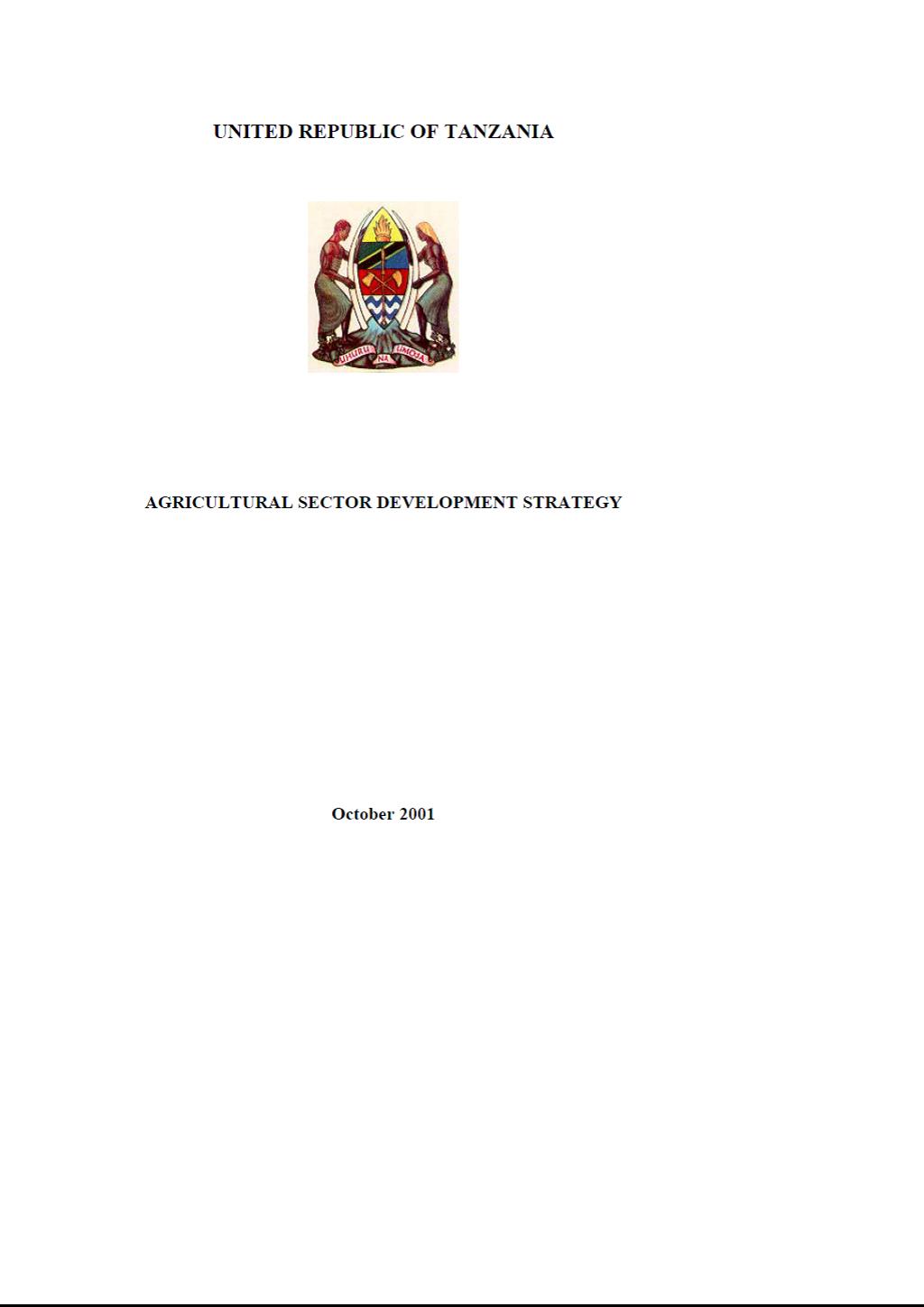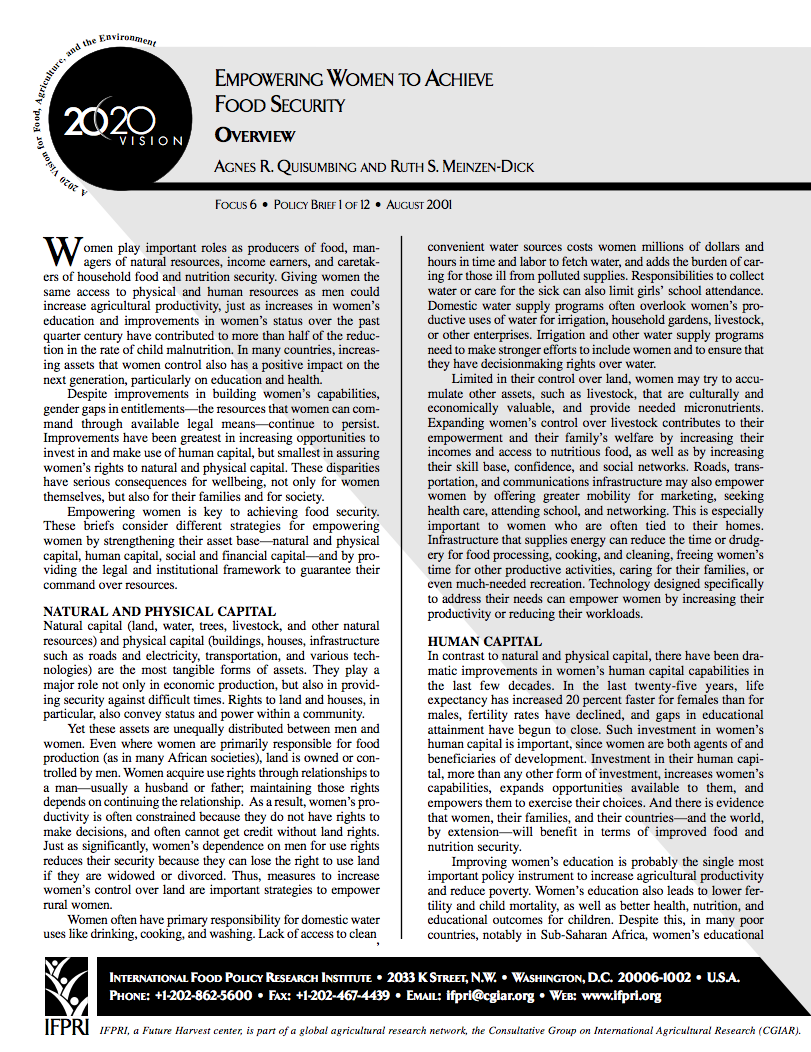The unfinished agenda: perspectives on overcoming hunger, poverty, and environmental degradation
This book brings together briefs and articles generated by the 2020 Vision initiative that remain highly relevant to the ongoing dialog and debate and, given the nature of the topics addressed, are likely to remain so for some time to come.
Agricultural Sector Development Strategy
This strategy is an integral component of the ongoing macroeconomic adjustment and structural reforms that are supported by Tanzania's development partners.
Empowering women to achieve food security
Women play important roles as producers of food, managers of natural resources, income earners, and caretakers of household food and nutrition security. Giving women the same access to physical and human resources as men could increase agricultural productivity, just as increases in women’s education and improvements in women’s status over the past quarter century have contributed to more than half of the reduction in the rate of child malnutrition.
Trade Liberalization: Impacts on African Women
Trade liberalisation processes impact differently on men and women due to the fact that men and women have different roles in production. Despite the fact that women are actively involved in international trade, WTO agreements are gender blind and as such have adverse impacts on women. The General Agreement in Trade and Service (GATS), for instance, provides for a level playing field in service provision between big foreign owned companies and small locally owned companies.
Report on a Regional Consultation on Land Reform
Report on a Southern African consultation of donors and civil society organisations held in Benoni on 3 May 2001. Its purpose was to review progress with land reform and what donors might do in its absence. Traces current developments in the region. Argues that donors should not walk away when things turn sour, that land reform is a long-term iterative process, needing the involvement of many stakeholders. Unequal ownership of land is an increasing threat to political stability. Strengthening civil society during periods of government inaction is of value for what follows.
Addressing Food Insecurity in South Africa
Includes food insecurity and its consequences, unemployment, household incomes and expenditure, the food expenditure gap, nutritional programmes, land reform and food security.
Integration of indigenous knowledge into land-use planning for the communal rangelands of Namibia
The paper argues that the indigenous knowledge of the Herero could provide the basis for better land-use policy and user rights in the communal lands of Namibia.This short article:reviews recent academic literaturelooks at the historical and legal backgound to land management in Namibiareports in 2 village field studies
Land tenure and land conflict in the South Pacific
The paper is a desk study prepared as a basis for discussion and further field research into land tenure and conflict in the region.The first section provides an overview of land tenure and land utilization issues. This section includes an analysis of gender and other demographic issues as they relate to land tenure and access to natural resources.
Achieving urban food and nutrition security in the developing world
The trend is inescapable: more and more people in the developing world are living in the cities. By 2020, the number of people living in developing countries will grow from 4.9 billion to 6.8 billion. Ninety percent of this increase will be in rapidly expanding cities and towns. More than half the population of Africa and Asia will live in urban areas by 2020. More than three-quarters of Latin Americans already do.










